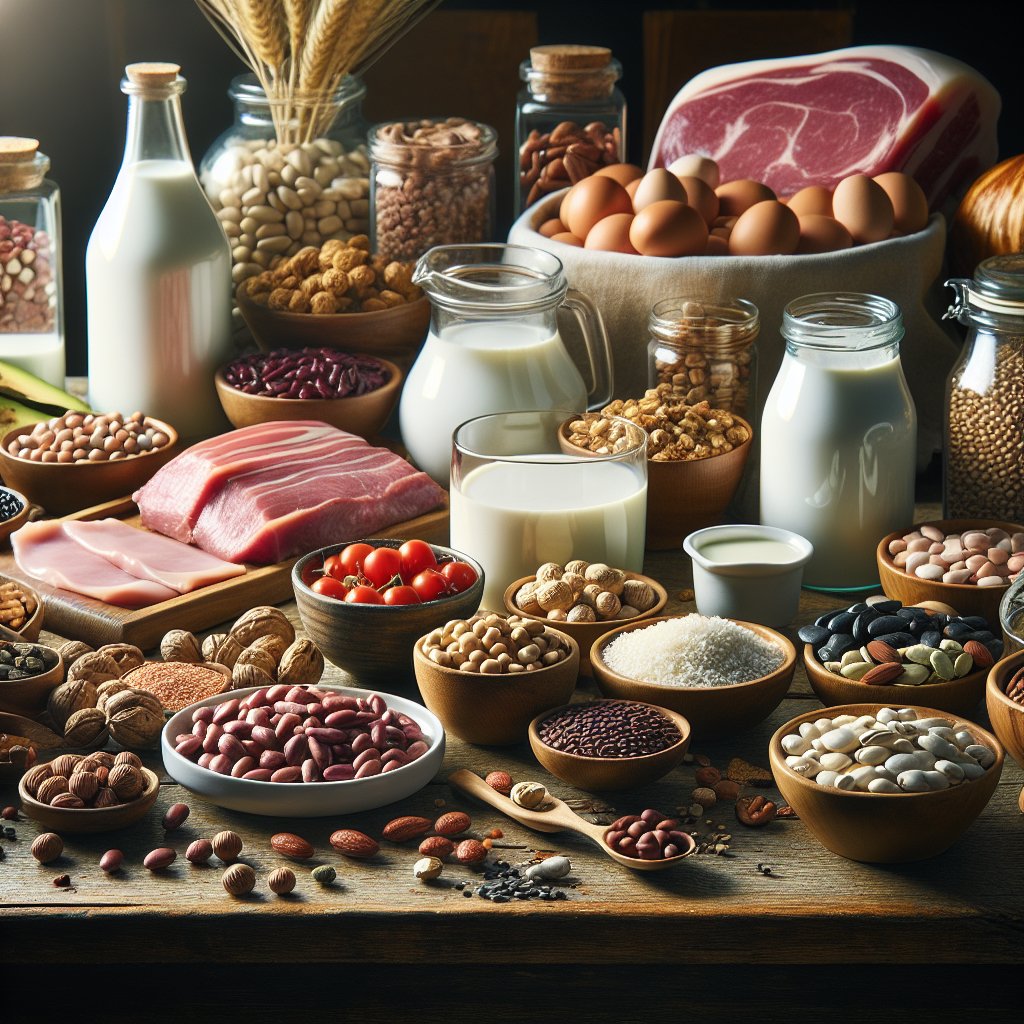The Great Protein Debate
If you’ve ever picked up a dumbbell, you’ve probably wondered how much protein you need to build muscle. The bro-science answer is simple: 1 gram per pound of body weight. That’s about seven chicken thighs a day for the average American male. But the official guidelines suggest a more modest 56 grams daily for men over 19. So, which is it? The truth is, your protein needs are as personal as your deadlift max. According to Dr. Spencer Nadolsky, a specialist in obesity and lipid management, your body weight and lean mass are key factors. The more you weigh, the more protein you need.
Tailoring Protein Intake to Your Goals
Your goals matter as much as your weight. Shea Mills, a registered dietitian at the Mayo Clinic, suggests 0.8 to 1.2 grams per kilogram of body weight for the average adult. But if you’re hitting the gym hard, you might need 1.5 to 2 grams per kilogram. That’s the bro-science standard again. Protein is crucial for muscle retention, especially if you’re trying to lose weight. Physical activity, whether it’s weight lifting or cardio, increases your protein needs. But beware of diminishing returns. Consuming more than 1.6 grams per kilogram doesn’t necessarily yield extra benefits.
Going beyond 2 grams per kilogram can lead to fat gain, as our bodies can’t use excess protein for fuel. Plus, focusing too much on protein might crowd out other nutrients. Animal-based proteins often come with more fat, which can affect cardiovascular health. And let’s not forget the importance of a balanced diet. Carbs, fruits, and vegetables are essential for energy and disease prevention.
The Role of Protein in Your Diet
Protein is the only macronutrient we can’t live without. While carbs and fats aren’t strictly necessary, protein is vital for maintaining healthy organs and tissues. Without enough protein, our bodies might break down muscle to compensate. For those concerned about kidney health, Dr. Nadolsky assures that high protein intake isn’t harmful to healthy individuals with functioning kidneys. Most people get enough protein simply by consuming enough calories.
Complete proteins, which contain all essential amino acids, are typically found in meat, fish, and dairy. However, plant-based options like soy, quinoa, and chia seeds are also complete proteins. Don’t underestimate ‘incomplete’ proteins like beans and nuts; they pack crucial vitamins and minerals. The bottom line? You’re probably getting enough protein. The 1 gram per pound rule is fine but not necessary. Just don’t let protein overshadow your veggies.
Finding Balance in Your Diet
While protein is essential, balance is key. Too much focus on protein can lead to neglecting other important nutrients. A diet rich in fruits, vegetables, and whole grains provides fiber, vitamins, and minerals that are just as crucial as protein. A well-rounded diet supports overall health and helps prevent chronic diseases. So, enjoy your chicken thighs, but make room for a colorful variety of foods on your plate.
In the end, it’s about finding what works for you. Listen to your body and adjust your protein intake based on your activity level and goals. Remember, nutrition isn’t one-size-fits-all. Your dietary needs are unique, just like your workout routine. So, eat wisely, train hard, and don’t forget to enjoy the journey.



